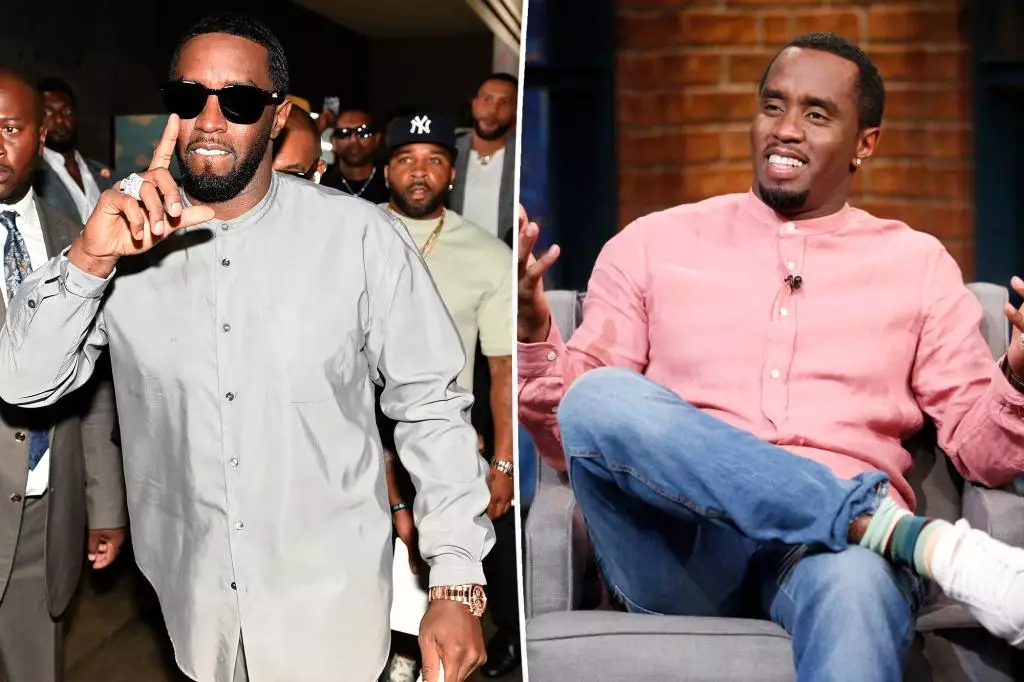The recent legal battles faced by Sean “Diddy” Combs, the prominent music mogul, have shattered the image he has cultivated over his decades-long career. Prosecutors have come forward with bombshell allegations, claiming that Combs is engaged in an elaborate scheme to undermine his upcoming sex-trafficking trial. As new evidence unfolds, the intricacies of this case reveal not only the gravity of the charges against him but also the socio-legal ramifications of his alleged actions and strategies while in custody.
At the crux of the accusations is a pattern of behavior that prosecutors believe illustrates Combs’ attempts to “corruptly influence” the legal proceedings against him. Since being incarcerated at the Metropolitan Detention Center in Brooklyn, New York, Combs has allegedly exploited the prison’s communication system to maintain contact with individuals who are either victims or potential witnesses in the case. This series of alleged infractions has raised serious questions about the integrity of the legal process, particularly regarding how incarcerated individuals handle communication and due process.
The government contends that Combs has utilized the phone accounts of other inmates—reportedly more than eight—to engage in conversations in a manner designed to evade detection by law enforcement. This circumventing of prison regulations not only places him in violation of Bureau of Prisons protocols but also paints a picture of a man willing to engage in unethical, if not unlawful, tactics to manipulate the outcomes of his trial. Such actions, if true, could reflect a broader disregard for the legal system, accentuated by Combs’ perceived wealth and celebrity status.
Adding a curious twist to this legal narrative is the accusation that Combs is also orchestrating a public relations strategy designed to influence public perception and potentially sway jury opinions. Notably, prosecutors highlighted how Combs’ children recently shared a celebratory video on social media showcasing their father’s birthday. According to the legal filings, this behavior might be an effort to cultivate a sympathetic image for the rapper, which could inadvertently—or perhaps deliberately—interfere with a fair trial process.
This manipulation of public perception raises questions about the ethical boundaries of celebrity influence in legal proceedings. High-profile figures like Combs have an inherent platform that can warp the perceptions of the public and jury members alike. As such, this situation demands scrutiny, particularly concerning the impact that public sentiment can wield on judicial outcomes.
Perhaps one of the most troubling allegations is that Combs may be seeking to blackmail victims and witnesses into either silence or cooperation with his defense. Prosecutors have alleged that Combs is involved in a strategy to “anonymously publish information” that could potentially bolster his case, thereby raising ethical and moral questions about the lengths to which he may go to escape accountability.
If these claims hold merit, they signify a profound issue with respect to the balance of power in legal situations where wealth and influence collide. Can justice truly prevail when individuals attempt to manipulate those who have already suffered through coercive tactics? The answer to this question is not only relevant to Combs but also reflects larger systemic issues within the justice system.
As of now, Combs is facing severe charges including racketeering conspiracy, sex trafficking, and facilitating criminal sexual behavior under the guise of organized parties. His denial of wrongdoing and not-guilty plea suggest that he will vigorously contest the charges against him. With the trial set to begin on May 5, 2025, observers from around the world are paying close attention. The outcomes of this case could have profound implications for both his legacy and the broader discourse around accountability in cases of serious criminal allegations involving high-profile figures.
Ultimately, the unfolding events surrounding Sean “Diddy” Combs illustrate a complex interplay of celebrity, ethics, and the law. As these allegations continue to evolve, they serve as a reminder of the power dynamics at play within the judicial system, the media’s role in shaping narratives, and the urgent need to ensure justice remains blind to celebrity status.
